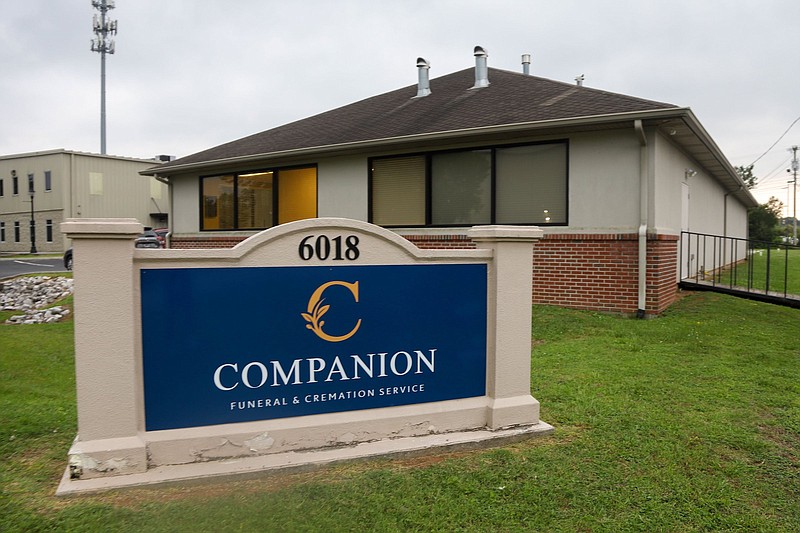A Compassionate Approach To Farewell
In today's world, the concept of a companion funeral is becoming increasingly relevant as families seek to honor their loved ones in a more personal and meaningful way. This approach not only provides a space for shared grief but also emphasizes the importance of community support during one of life’s toughest moments. By focusing on the emotional and spiritual needs of the bereaved, companion funerals offer a unique alternative to traditional funeral services.
As we delve into the intricacies of companion funerals, we will explore the various aspects that make this approach distinct. From understanding the benefits of a companion funeral to the practical steps involved, this article aims to equip you with the knowledge needed to navigate this sensitive topic. Whether you are planning for yourself or a loved one, the insights provided here will foster a greater appreciation for this compassionate method of honoring life.
So, what exactly is a companion funeral? Essentially, it is a service designed to celebrate the life of the deceased while allowing family and friends to come together in a shared experience of mourning. This article will guide you through the essential elements of companion funerals, providing clarity and understanding around this heartfelt practice.
Table of Contents
What is Companion Funeral?
A companion funeral is a service that allows families to come together to celebrate the life of a deceased person in a supportive environment. Unlike traditional funerals, which may focus heavily on the deceased, companion funerals emphasize the shared experiences and memories of those who are grieving. This approach encourages attendees to engage in a dialogue about their feelings, fostering a sense of community and healing.
Key Features of Companion Funerals
- Inclusivity: All family members and friends are encouraged to participate.
- Personalization: Services can be tailored to reflect the deceased's personality and values.
- Shared Memories: Attendees are invited to share stories and memories, creating a collective atmosphere of remembrance.
- Supportive Environment: Focus on emotional and social support for the bereaved.
Benefits of Companion Funeral
Companion funerals offer numerous benefits that make them an appealing choice for many families. Understanding these advantages can help you determine if a companion funeral is right for you or your loved ones.
Emotional Support
One of the primary benefits of a companion funeral is the emotional support it provides. By gathering friends and family, individuals can share their grief and find comfort in the presence of others who are experiencing similar feelings.
Strengthening Relationships
Companion funerals can strengthen relationships among attendees. Sharing memories and experiences can deepen connections and create a sense of unity in the face of loss.
Personalized Tributes
These funerals allow for personalized tributes that reflect the deceased's life and passions, making the service more meaningful and memorable for everyone involved.
Planning a Companion Funeral
Planning a companion funeral involves several key steps to ensure that the service reflects the wishes of the deceased and the needs of the family. Here are some essential considerations:
Choosing a Location
Selecting a suitable location is crucial. Many families opt for a comfortable setting, such as a home or community center, rather than a traditional funeral home.
Involving Family and Friends
Involve family and friends in the planning process to gather input and share responsibilities. This collaboration can enhance the sense of community and support.
Elements of Companion Funeral
A successful companion funeral typically includes several key elements that contribute to the overall experience:
Personalized Service
Incorporating personal touches, such as favorite songs, photos, or videos, can create a more intimate atmosphere.
Memory Sharing
Encouraging attendees to share their memories and stories can enhance the sense of connection and remembrance.
Who Can Benefit from Companion Funeral?
Companion funerals can benefit a wide range of individuals and families, including:
- Those seeking a more personal and intimate farewell.
- Families with complex relationships who wish to foster healing.
- Individuals who value community support during times of grief.
Companion Funeral vs. Traditional Funeral
Understanding the differences between companion funerals and traditional funerals can help families make informed decisions regarding their end-of-life services.
Focus on Community
Unlike traditional funerals that may prioritize formalities, companion funerals emphasize community and shared experiences.
Cost Considerations
Companion funerals may also be more cost-effective than traditional funerals, as they often involve fewer formal arrangements and services.
Financial Aspects of Companion Funeral
While companion funerals can be more affordable, it’s essential to consider all associated costs to avoid surprises. Some potential expenses include:
- Venue rental fees.
- Personalized items (e.g., memory boards, photo displays).
- Food and beverages for attendees.
Final Thoughts on Companion Funeral
In conclusion, companion funerals provide a compassionate and supportive approach to honoring a loved one's life. By focusing on shared experiences and emotional connections, families can find solace in their grief and celebrate the memories of those who have passed.
As you consider your options, reflect on what would best serve your family's needs during this challenging time. Engaging in open conversations about end-of-life preferences can pave the way for a meaningful farewell.
If you’ve found this article helpful, please leave a comment below or share it with someone who may benefit from this information. For further reading, check out our other articles on grief support and end-of-life planning.
Thank you for taking the time to learn about companion funerals. We hope to see you back on our site for more valuable insights and resources.
Article Recommendations



ncG1vNJzZmilqZu8rbXAZ5qopV%2BcrrOwxKdsaJufor2iusiopWaepaOys63LZ5%2BtpZw%3D